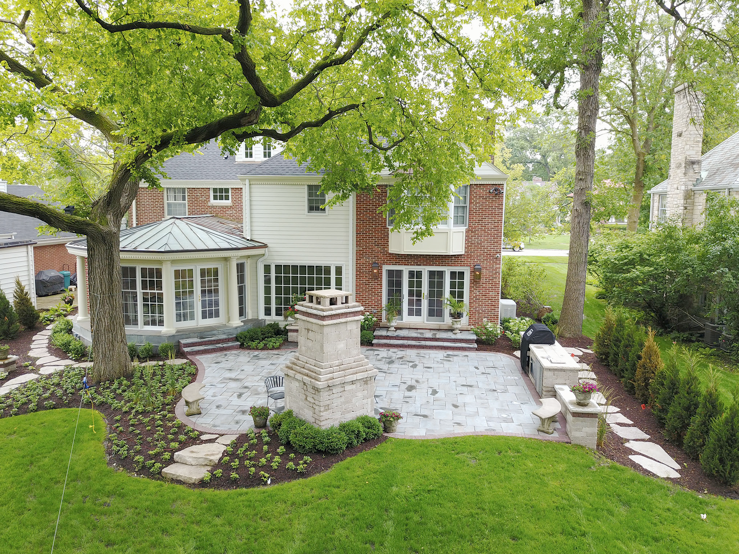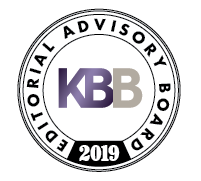In the last couple of years the greater Chicagoland area has seen a substantial jump in real estate values that have significantly outpaced the costs of construction.
Homeowners often wonder if they should stay put and renovate or sell and build a new custom home. Which provides more value?
Let’s examine the building new vs renovating toss-up and the things that both processes have in common.
You Can’t Skip the Design and Planning Process!
Whether building or renovating, you can’t escape it. Following a proper process will gather all possible information about a property to help decision making. There are three phases:
- Preliminary Design: This includes concept creation and a review of zoning regulations.
- Design Development: Interior design and project specifications/selections.
- Construction Documentation: Construction drawings and permit submittal.
Regardless of your desire to renovate or to build new, the initial conceptual design process is smaller and simpler than you might think, but very important. It presents an opportunity for you to establish a working relationship with your architect (design professional) on a “see how it goes” basis. It also identifies the larger items in getting the project started, like budget, or if an extra floor is feasible, or considering an addition at the rear.
https://www.michaelmenn.com/our-process/
What Does Your New or Renovated Home Need?
List all the features that you need in your home (wish list). How many bedrooms and bathrooms? Need a suite? What about future family plans to factor in? Also consider the “nice to haves” or “wants”. Both the needs and wants will help form the framework and constraints for the creative team. We will come up with three options for you to choose from. Usuually it is a combination of the three designs (we like the Kitchen from Scheme A, the Master Suite from Scheme B and the Exterior from Scheme C. Once these have been combined , the next step is to start building your budget.
There are two ways to come up with a budget for design.
- Do the design and cost it, or
- Set a budget and work within it. (Obviously, this can put constraints on the creative process, but a budget is a budget.)
How Much is My House Worth Now and How Much After Renovation?
A realtor/appraiser can provide you with the estimated sale value of your home after the project.
This is helpful for determining a “safe zone” for your project investment.
An equation that many builders/remodelers likes to use is: Finished value minus 10% = the starting point for the rest of the math.
So we are starting with a new value that is 90% of appraised value.
Before
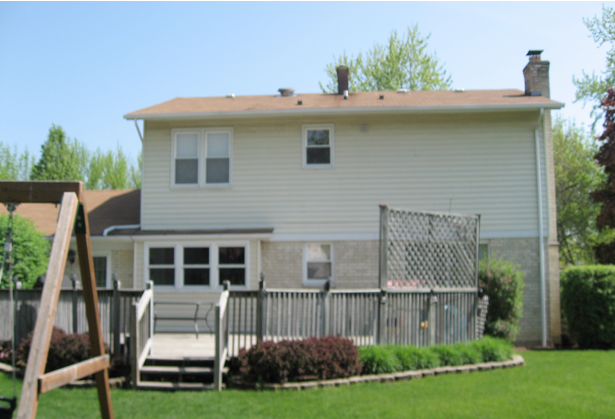
After
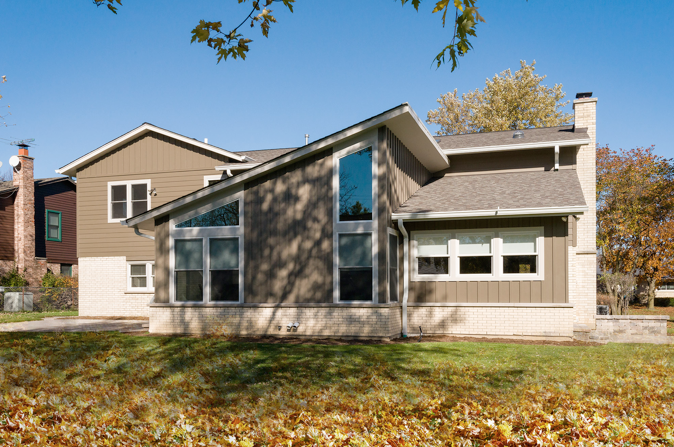
Love It or List It – Renovate or Build New?
I’m guessing you’ve seen the TV show Love it Or List It. It demonstrates that completing “the process” will give you the information you need to figure out what is right for you. Things to take into account are based on:
- Real costs of selling and moving, like realtor fees, Property Transfer Tax, temporary rent, movers and packing, even storage. These fees and costs often are much higher than people think, thus affecting the equations and decisions about building new vs renovating, or even to sell and buy somewhere else.
- The value of getting exactly what you want vs. what is available out there.
- Do you love where you live? This is a big one. If not, you may need to move to get what you’ve always wanted.
Renovate or Build New?
OK, we’re finally getting to the big question. Consider these issues to help tip the balance for you:
- Does the home have a favorable existing non-conforming condition that is beneficial to keep?
- Does the home have good “bones”, like 2×10 joists? Are the foundations in good shape?
- Is the house and foundation properly positioned on the lot? Is it an appropriate size for the lot?
- Do surrounding home values support the new finished product and its value? It can be nerve wracking to have the most expensive house on the block.
“Better Than New”
Yes, I would argue that something can indeed be built “better than new”.
With home construction, the words “new” and “quality” are not automatically interchangeable. Many new construction projects here in Chicago do not really represent what a reasonable person would call quality. Consider these images of “new” alongside a renovation by one of our teams.
New:
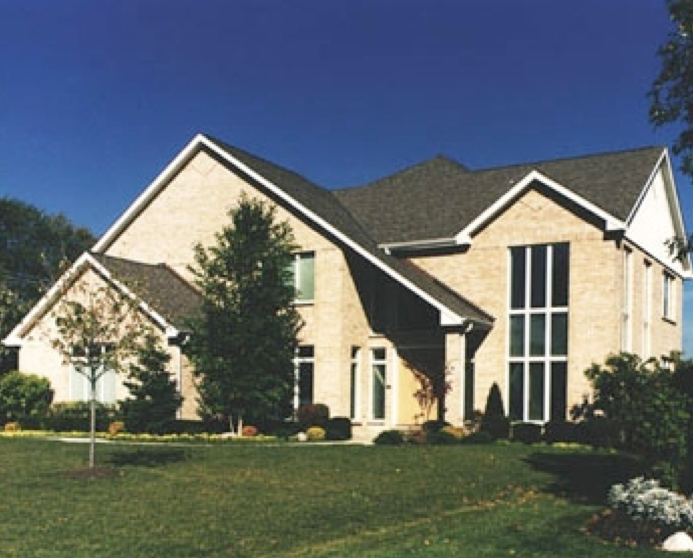
Renovated:
Quality is care. Quality is skill. Quality is accountability. Quality is built with every small step carried out impeccably.
Of course, there are good reasons to build new and not renovate. Sometimes a renovation can’t fill the need. But the same process works for both kinds of construction. Just be sure you get verifiable quality, not merely a word.
Amortize the “Pleasure of Ownership” of a Custom Designed and Quality Built Home
Large renovations and new homes both have significant price tags. Affordability and cost of ownership are important factors. But with current low interest rates, renovations look more affordable when viewed as a cost per month, rather than a final price. They also involve less time commitment.
For example, a $100,000 gourmet kitchen will cost about 450.00 per month over a standard term. When you factor in improved values for the overall home and improving its layout, your true cost of ownership can be as low as 100.00 per month for a gorgeous new kitchen!
Whatever your thinking, feel free to share it with us at Michael Menn Ltd., one of Chicagoland’s established and trusted design/builers. Our advice will provide insights and perspectives you may not have considered.
I want to thank my friends and colleagues at Kerr Construction in Vancouver, B.C. for the structure of this blog and for their insight into ways to constantly keep our clients knowledgable about the design and building process.
Wishing you all health and safety.
Michael A. Menn
Principal, Architect
AIA, CGR, CAPS, CGP, NCARB
Michael Menn Ltd.
2017 President of the Home Builders Association of Greater Chicago
2016 National Remodeler of the Year
Emeritus, PowerHouse Smart Board of Advisors
American Institute of Building Design

